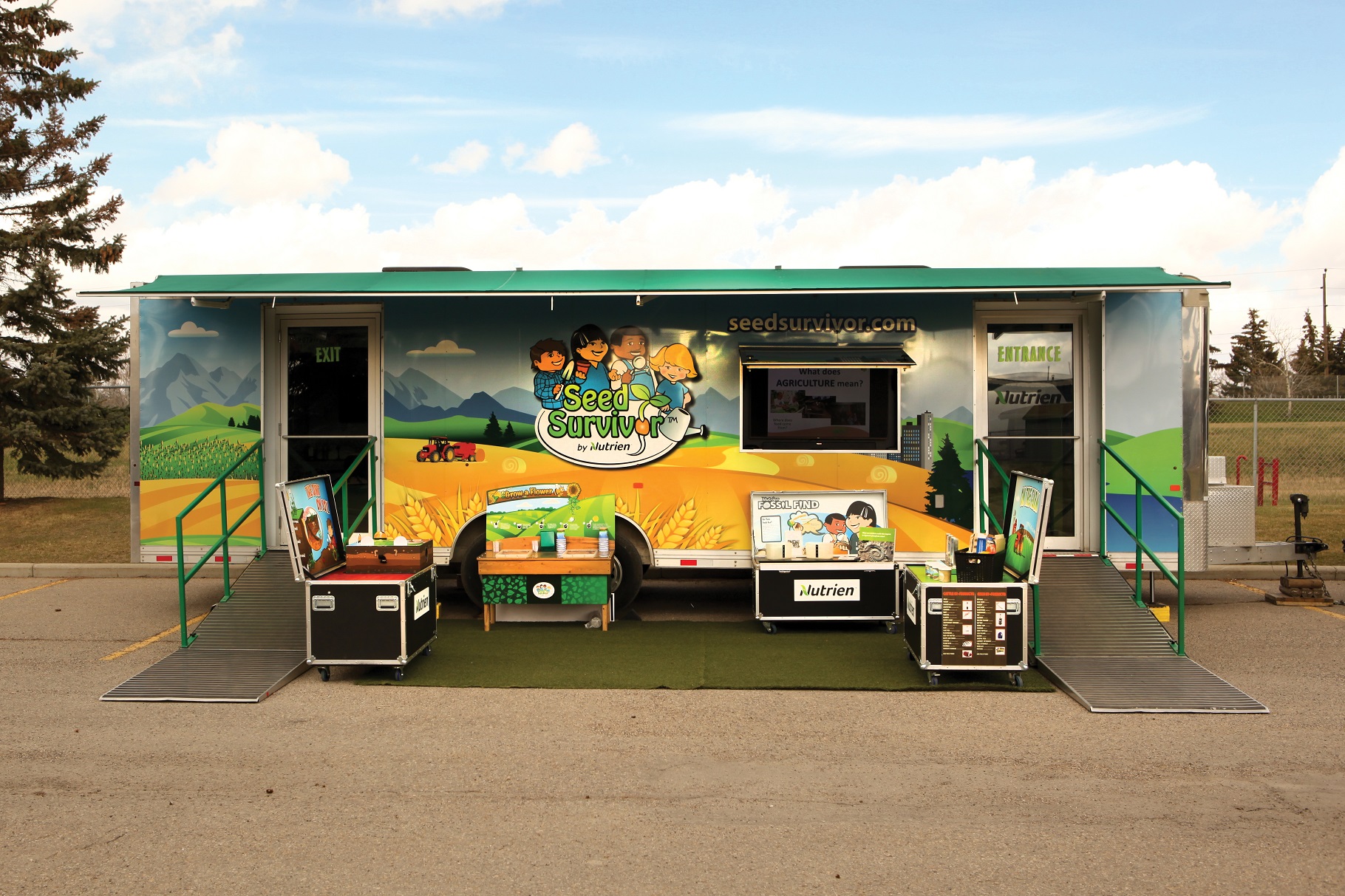Growing Agricultural Knowledge in the Next Generation

To feed the world, humanity needs farmers.
Rose Lecky, Director, Community Relations and Investment, Nutrien
Agriculture has been woven into my DNA since I was born.
Growing up with five siblings on our 1,200-acre family farm near Edmonton on the Western Canadian prairies, I was the farm girl who gravitated to doing things outside, like helping with building projects and watching machinery getting fixed. As I got older, I started driving equipment and working the fields. I would be baling, swathing, combining, hauling grain, and whatever we needed to get done.
My focus was always on farming or helping farmers, which carried right into post-secondary studies in which I graduated with an agriculture degree.
It was about 20 years ago when Nutrien rolled up its sleeves and committed to doing what it could to educate youth on the importance of the ag industry, as there was a growing disconnect when it came to understanding farming and where food comes from. What we had begun to observe back then was not unlike what we still see and hear today.
Lots of young people are not able to identify basic farm equipment. One should know what a planter or a combine is, but most have no idea. Same with basic crops. Canola is so beautiful with its big yellow flower, and those vibrant yellow fields when the plants are in full bloom are something we are known for in Canada, yet so many think it is only a flower. They do not understand the significance of a canola crop.
We have had someone ask why we need dairy farms and what a waste it is to have those animals when you can just go to the grocery store to get milk. We once had a kid ask us what kind of seed grows cheese.
These are the things you worry about because the youth are our future. They are our future voters, who will drive policy based on what they buy, say, blog, etc.
It was when we partnered with the Calgary Stampede in 2004 that we began talking seriously about developing programming to educate children about agriculture. Our concept was to build something that is significant, meaningful, and in the classroom, as it needs to connect to the curriculum. Most importantly, make it engaging and fun by being innovative, hands-on, and experiential. And we must have something for all ages from kindergarten to grade 12.

We started work on our flagship education program, Seed Survivor, shortly after. Fast forward to today, and Nutrien has two Seed Survivor trailers that tour around Canada during the warmer months when school is still in. They each go stateside during the winter. Demand is high, and both trailers are busy all the time.
Additionally, we have our Caring for Our Watersheds and Journey 2050 school programs and our educational farming app, Farmers 2050. Add in all the ag education organizations and programs we proudly support, like Ag in the Classroom, 4-H, FFA, and Little Green Thumbs, and we reach about a million children a year.
When teachers provide feedback, it’s always positive around how the students are engaged, interested, and asking questions. Anytime you can get the kids touching soil, or planting a seed and watching it grow -- watering it, and talking about those simple little elements -- that is enough for that conversation to go a little further.
It is one of those things where often you do not get immediate gratification. That comes when you reach different milestones and look back.
When I get the opportunity to chat with children about their experiences, I see them light up, and I can see the passion — and it feels good to know that it was through our foresight, thinking, and strategy that we made that happen.
Several years ago, when we were still developing Journey 2050, my son's grade 7 class came in to help us with the testing. We brought the kids into our board room, gave them an iPad, and had them play it. Years later, one young girl who was part of that went into the field of agriculture, studying ag research at the University of Saskatchewan. At her graduation, she said I have to credit you, Mrs. Lecky, for getting me interested in agriculture, and it was because of that day playing Journey 2050.
With more of an urban population now and less rural to reinforce the importance of agriculture and where food comes from, you need to look for opportunities to help educate. It is a long process, it is a slow process, but you cannot let up. You have to keep working at it and seek out like-minded industry partners to advance the effort.
One of our biggest opportunities is changing the stereotypes of what farming is and what farmers look like. I cringe whenever I see a pitchfork and bib overalls used to represent the industry because it is such an antiquated perspective. The reality is farming has become progressive and innovative.

Farmers are doing remarkable things. They have remote technology. The chemistry involved is very technical. It is very strategic around the marketing of their product. At the same time, society demands that farming practices be efficient, nutritious, safe, and sustainable.
Farmers are not afraid of trying new technology. They are okay to work up to something or invest in something new, but in the end, it does have to be profitable and the right thing to do.
For us, we must continue to tell the story of everything farmers do and everything society expects of them. Our education programs help start that conversation so farmers have a voice and can show their commitment to being stewards of the land.
When you see that spark from kids coming through our programs, you hope it ignites an interest in learning more about agriculture and maybe even pursuing that for a career.
%20without%20Tagline%20(PNG).png?width=2616&height=560&name=Nutrien%20Logo%20(COL)%20without%20Tagline%20(PNG).png)

